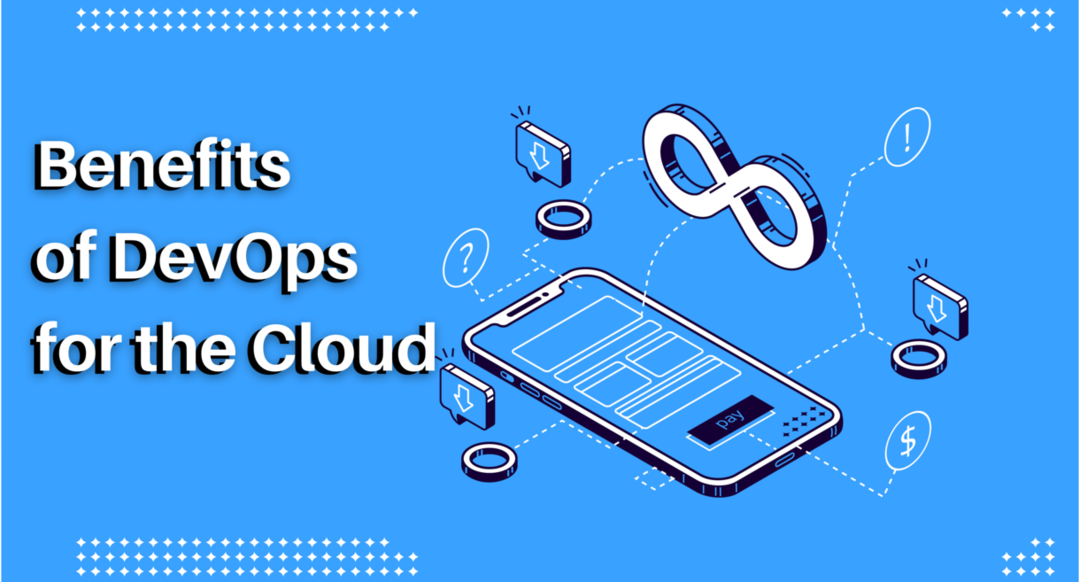With the ever-increasing need to reduce the time to value and to deliver a high-quality product continuously, the DevOps philosophy developed and matured over time. As a result, the benefits of DevOps Singapore are worth considering when adopting a cloud-based approach.
Before the DevOps philosophy became popular, software and operations teams used to operate in silos. Developers wrote code, QA tested the code, and system administrators or the operations team were responsible for deploying and integrating this code. There was very little communication and collaboration between these teams. Ergo, specialists worked separately and individually on different aspects of the project.
This system worked reasonably well when software development projects were managed using the Waterfall method. However, there are multiple drawbacks to the Waterfall method, the most significant being that the software development and maintenance lifecycle is too long.
Enter Agile, CI/CD and DevOps.
Before we consider the benefits of implementing a DevOps strategy, let’s take a quick look at Agile and CI/CD, for they are both an integral part of DevOps practice.
Agile and CI/CD pipelines
Agile is the ability to create and respond to change in a short space of time. The Agilealliance.org website notes that it is a “way of dealing with, and ultimately succeeding in, an uncertain and turbulent environment.” Moreover, Agile software development is the overarching term for the frameworks and associated practices based on the values and principles found in the Agile Manifesto.
CI/CD or continuous integration/continuous delivery is a set of principles that empowers software dev teams to deploy code changes frequently and reliably. It is a DevOps and Agile methodology best practice that includes creating CI/CD pipelines that facilitate the continuous automated deployment of micro, high-quality software updates that focus on meeting business requirements.
DevOps and the cloud: A brief exposé
DevOps (Development + Operations) combines the software development and IT operations teams’ functions to shorten the time-to-value when developing, testing, and deploying a software application. Succinctly stated, DevOps is the philosophy and practice that allows individual dev and ops teams to work together, promoting better communication and collaboration between these teams to deliver a high-quality end product to the customer as quickly as possible.
Contrary to popular belief, the DevOps philosophy is not about the tools or the processes. Instead, it describes the culture or ideology that changes how teams work together to achieve common business goals.
What about DevOps and the cloud?
The Accrets’ private cloud specialists, based in Singapore, report that DevOps is the leading technology driving the interest in embracing cloud-based technologies. Statistics quoted by David Linthicum, Chief Cloud Strategy Officer, Deloitte Consulting, show that the “overall [cloud-based] DevOps adoption rises to 66 percent, with enterprises reaching 71 percent.” In other words, DevOps is driving the rapid adoption of cloud-based infrastructure and not the other way around.
The core benefits of implementing the DevOps philosophy and practice
As DevOps and cloud-based (both private and public) technologies continue to demonstrate their combined value for enterprise organizations, an ever-increasing number of organizations will come on board for the advantages of DevOps far outweigh the challenges of the culture shift and mindset change required by the organization.
Let’s expand on this topic by considering the key benefits of implementing the DevOps philosophy in your organization or connecting with a private cloud specialist company that implements the DevOps philosophy in the end-to-end management of your cloud infrastructure:
1. Improves (reduces) time to value
The time to value metric measures the time it takes for the business to realize value from the product (software application). The sooner the product is deployed to the businesses, the greater the revenue derived from it.
As described above, the traditional software development and deployment lifecycle can be lengthy, taking weeks or months for new features, bug fixes, and upgrades to be deployed. This scenario became untenable for business users, paving the way for the Agile methodology and DevOps philosophy: facilitating the creation of CI/CD pipelines with the continuous delivery of small code updates, reducing the time to value or the time that it takes for business users and stakeholders to receive what they asked for.
2. Improves collaboration and communication
In the traditional software development model, teams work in separate silos with very little communication, each working on their own disparate goals; thereby, decreasing the quality of the product delivered and increasing the length of time it takes for upgrades and bug fixes to be delivered.
Juxtapositionally, the DevOps culture values collaboration and communication between business stakeholders, dev team members, and operations team members, decreasing the time taken to deliver and deploy a high-quality product. Succinctly stated, when team members communicate and collaborate, there will be a greater insight into user requirements, shortening the time to value and reducing the number of code iterations because the dev team does not understand exactly what the user wants.
Note: In the same way, when moving your server infrastructure and software stack to the cloud, skilled DevOps engineers will collaborate and communicate with your company to ensure that they reduce the time to value or the time that it takes from the start of the project to the time that your systems are live in the cloud.
3. Increases the ability to operate at scale
The ability to operate at scale or rapidly increase (and decrease) server capacity and capability at very short notice is vital for the modern digital organization.
As an aside, this is one of the key benefits of moving from on-premises servers to the cloud.
DevOps improves your organization’s ability to quickly scale up and down so that your business operations run smoothly, are cost-effective at all times, with reduced risk by automating processes and ensuring consistency through repeatability throughout your cloud-based hardware and software architecture.
For instance, a private (and public) cloud is based on the Infrastructure-as-a-Service or Infrastructure-as-Code construct; thus, helping you manage your development, QA, and production environments efficiently and reducing the risk of downtime.
4. Improves cybersecurity
Not only does DevOps improve the speed of software delivery, but it also increases the software security by improving 360-degree visibility as well as the use of automation, the Agile methodology, and a tool-agnostic approach in the following manner:
4.1 360-degree visibility
The article titled “Why 360-degree visibility is vital to protect critical infrastructure,” notes that 360-degree visibility is a “fundamental cybersecurity and IT risk management strategy that will help to protect critical infrastructure assets and sensitive information.”
Practically speaking, 360-degree visibility is the holistic view of distributed infrastructure and networks using a single cybersecurity solution, reducing the risk of a cyber-breach, instead of multiple solutions resulting in a fragmented view, increasing the risk of a cyber-attack.
4.2 Automation
Automation reduces manual tasks, improves consistency and predictability, and decreases the risk of bugs and security vulnerabilities introduced through human error.
4.3 Agile methodology
As highlighted above, the fundamental principles of Agile include continuous development and testing as well as increased communication and collaboration between the relevant stakeholders. Therefore, not only are dev and operations teams involved from the start, but cybersecurity specialists are also incorporated from the beginning of the software development project, mitigating the risk of a cyberattack by implementing the latest cybersecurity best-practice methods from the get-go.
4.4 A tool-agnostic approach
The DevOps philosophy is not tool-specific. Therefore, it does not require you to use any particular framework or tool, so DevOps teams are not bound to specific platforms or vendors. This is a critical part of ensuring cybersecurity best practices are followed because you can adopt the tools, services, and best-practice methods that are the most secure for your needs.
5. Iterative feedback
A critical aspect of the DevOps paradigm is to seek feedback on almost every part of a software development/deployment cycle. This feedback is then iterated through the development and operations teams, improving processes and procedures.
Note: The same iterative feedback process is appropriate in the maintenance and management of cloud-based infrastructure solutions, secure hosting services, and managed cloud services.
Final thoughts
To remain competitive in the modern digital world, turned on its head by the global COVID pandemic, organizations must move faster and with more precision and agility than the competition. DevOps, provided by Accrets International, Singapore, facilitates this process by focusing on stakeholder (or customer) requirements, reducing human error, simplifying the goals for each release, introducing automation, and reducing the time to value by meeting and improving on key deliverables.
Lastly, it is imperative to be mindful that DevOps is a journey, and the journey is the destination.

